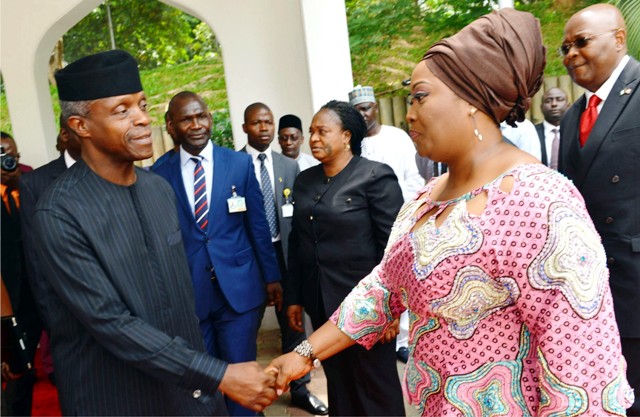Business
AGF To Enforce Auditors Compliance With IPSAS

The Auditor-General of the Federation (AuGF), Mr Anthony Ayine, says his office will enforce compliance with the International Public Sector Accounting Standards (IPSAS).
According to Ayine, IPSAS is a requirement for accounting by internal auditors of Ministries, Departments and Agencies (MDAs).
The AGF spoke at the opening of a one-day retreat organised by the Office of the Accountant-General of the Federation (OAGF) in collaboration with the Office of AuGF in Abuja yesterday.
The theme of the retreat was “First year of IPSAS Accrual Basis Implementation in Nigeria: Issues and Prospects.”
Ayine said it had been observed that the internal auditors had not been complying with the accounting standard.
He said non-compliance hindered accountants from sending their reports to the AuGF and the AGF in the required format.
“Maybe they have been sending to the AGF, but for the AuGF, most internal auditors are not complying with this requirement.
“Very soon a circular from our office will go out and we are going to enforce compliance with this requirement because internal auditors have a very critical role to play in the accountability process,” said Ayine.
According to him, the hallmark of IPSAS is transparency and disclosure.
Ayine said it was observed in the 2016 review that it was not enough for figures to be on a financial statement but there should be adequate disclosures to add meaning to the figures.
He advised participants to take the opportunity seriously, adding that they would be better for it and Nigeria would be in a position to compete favourably globally.
The AGF, Mr Ahmed Idris, in his address, said while many showed great concern on government’s ability to implement IPSAS Accrual Basis, some doubted it, while others thought it was impossible.
Idris, who was represented by the Director, Revenue and Investment, Dr Bakari Wadinga, said the implementation was made possible by leveraging on the provision for first time users to make it easier.
He said the Federation Accounts Allocation (FAAC) Sub-Committee on IPSAS implementation in Nigeria had provided a roadmap for IPSAS implementation in the three tiers of government.
Idris said the transiting to IPSAS required a lot of capacity building and commitment by process owners, as there were deficiencies in the first year of implementation.
“The present administration has demonstrated continuous commitment to sustainable policy implementation by providing the needed support and resources for Nigeria to adopt global best practice in financial management.
“This retreat seeks to address practical implementation issues and chart the way forward,” Idris noted.
The Tide source reports that IPSAS is a global accounting standard issued by the International Public Sector Accounting Standards Board (IPSASB) for application by public sector entities in the preparation of financial statements.
Transport
Automated Points Concession : FAAN Workers Gave 72hrs To Revise Decisions In PH

Transport
FAAN Announces Pick-Up Points for Go-Cashless Cards

Business
Fidelity Bank To Empower Women With Sustainable Entrepreneurship Skills, HAP2.0
-
Politics2 days ago
2027: NIGERIANS FAULT INEC ON DIGITAL MEMBERSHIP REGISTER DIRECTIVE
-

 Environment3 days ago
Environment3 days agoLAWMA Director Says Sweeping Reforms Have Improved Waste Collection
-
Politics2 days ago
LP Crisis: Ex-NWC Member Dumps Dumps Abure Faction
-

 Politics2 days ago
Politics2 days agoUmahi Dismisses Allegations On Social Media, Insists On Projects Delivery
-

 Sports3 days ago
Sports3 days agoAbia Not Sure To Secure continental Ticket
-
Sports2 days ago
La Liga: Yamal Records First Career Hat-trick
-
Politics2 days ago
NATASHA ELECTRIC VEHICLES INITIATIVE IN KOGI CENTRAL
-

 Sports2 days ago
Sports2 days agoCity Survive Leeds’ Challenge At Elland Road

